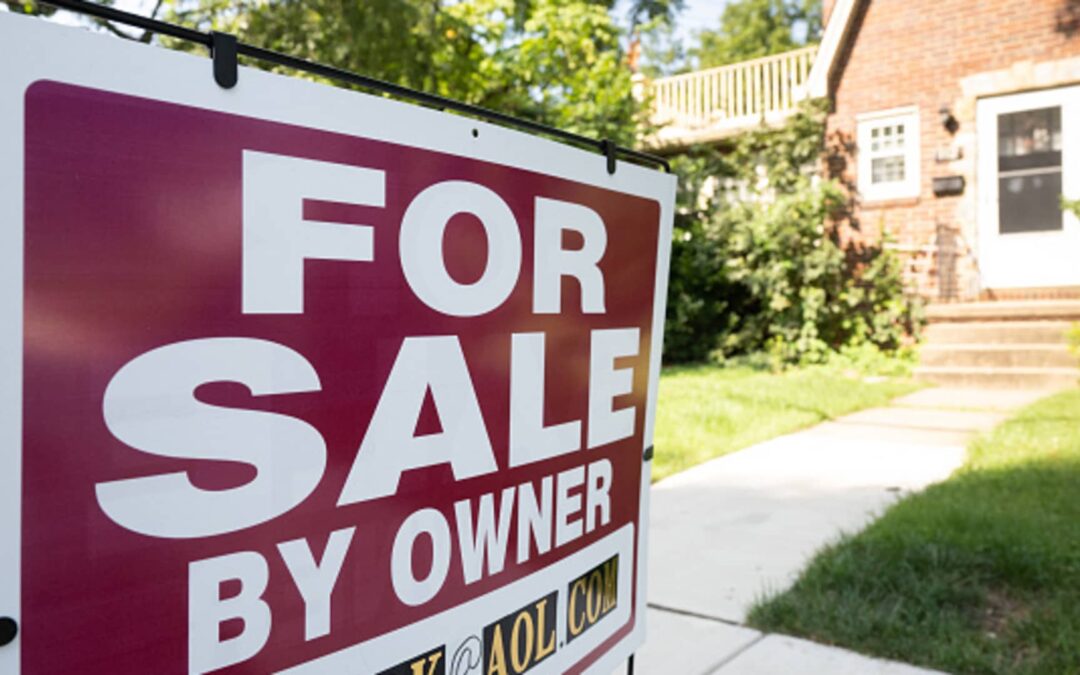A house is for sale in Arlington, Virginia, July 13, 2023.
Saul Loeb | AFP | Getty Images
Sales of previously owned homes dropped 2.2% in July from June to a seasonally-adjusted, annualized rate of 4.07 million units, according to the National Association of Realtors.
Sales were 16.6% lower compared with July of last year. Homes sold at the slowest July pace since 2010.
This count is for closings, so contracts were likely signed in May and June, when mortgage rates went from around 6.5% to well over 7%.
Sales fell month-to-month in all regions except the West, where they rose 2.7%. Sales dropped the most in the Northeast, down 5.9%.
The National Association of Realtors is blaming higher rates and still tight supply for the decrease. There were 1.11 million homes for sale at the end of July, 14.6% fewer than July 2022 and about half of the pre-Covid supply.
At the current sales pace, that represents a 3.3-month supply. A 6-month supply is considered balanced between buyer and seller.
Short supply continues to push both competition and prices higher. The median price of a home sold in July was $406,700, an increase of 1.9% from July of last year.
“The West is the most expensive region, but it’s also the region that experienced some price decline,” said Lawrence Yun, chief economist for the National Association of Realtors.
Prices in July rose in all regions year over year except in the West, where they were flat.
Roughly three-quarters of the homes sold were on the market for less than a month, indicating still strong demand. About 30% sold for above list price.
“Home shoppers have seen the number of options dwindle as homeowners are largely content to stay put and enjoy their current home, especially those with a low mortgage rate,” said Danielle Hale, chief economist at Realtor.com.
Sales fell across all price categories, but they fell the least in the highest price category: homes over $1 million. That is because there is much more supply on the high end, while the low end of the market is leanest.
Buyers continue to use cash to gain a competitive advantage. All-cash sales made up 26% of transactions, the share same as June but up from 24% in July 2022.
Investors, who tend to use cash most, bought 16% of homes in July. It marked a decrease from 18% in June but was up from 14% in July 2022.
First-time buyers appear to be gaining steam again. The Realtors reported 30% of sales going to these buyers, up from 27% in June.
Demand for FHA loans is also increasing. These loans, which offer low down payments, are favored by first-time buyers.
“The housing market is at a pivotal point as we head into fall,” said Lisa Sturtevant, chief economist at Bright MLS, noting higher mortgage rates in particular. “The decision between renting and buying will tip in favor of renting for some consumers, particularly in markets where rents are falling and new apartments are coming online.”









